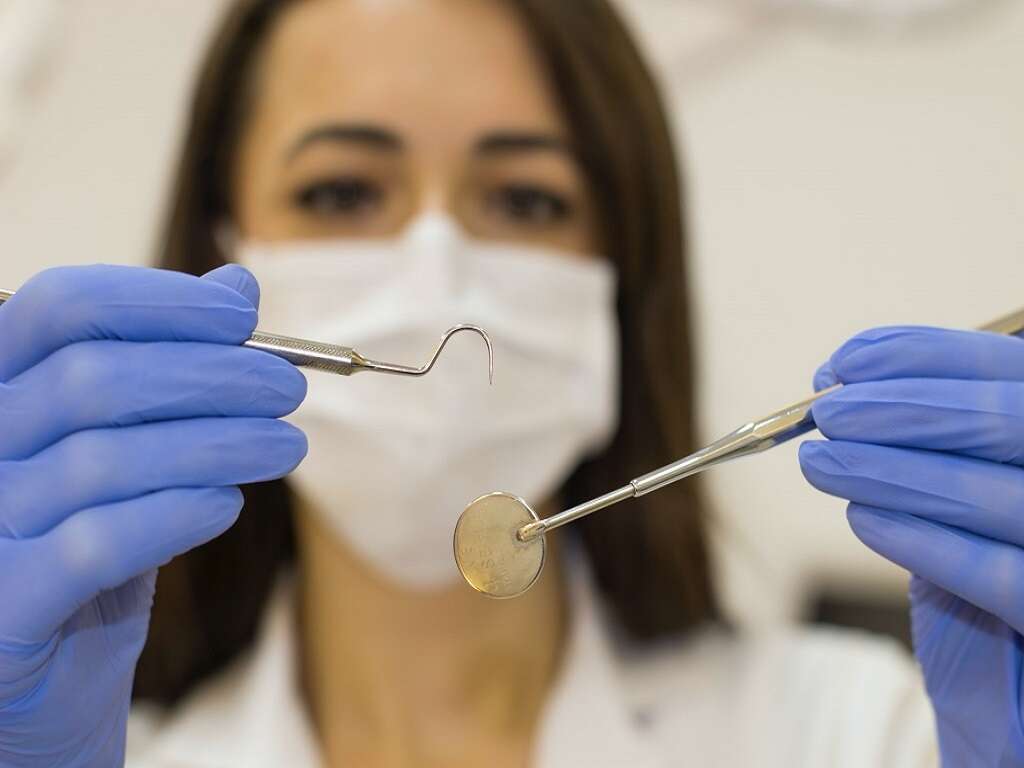What Is Fissured Tongue?
The tongue plays a vital part in the daily operations of your body. Still, plenty of people don’t really understand how the tongue works. Considered a muscular organ, the average tongue contains somewhere between 2,000 and 4,000 taste buds. While people often call it the “strongest muscle in the body,” this is not quite true. The tongue has incredible stamina and strength but it is actually a collection of roughly eight different muscles working together as a single unit. The tongue is utilized in everyday actions like talking, eating, drinking, and keeping your teeth free of food particles.
Unfortunately, as with any other part of the body, the tongue is susceptible to a number of conditions and ailments. A fissured tongue is one of the more common issues a person is likely to deal with. Look over these facts to learn more about this condition and how to treat it.
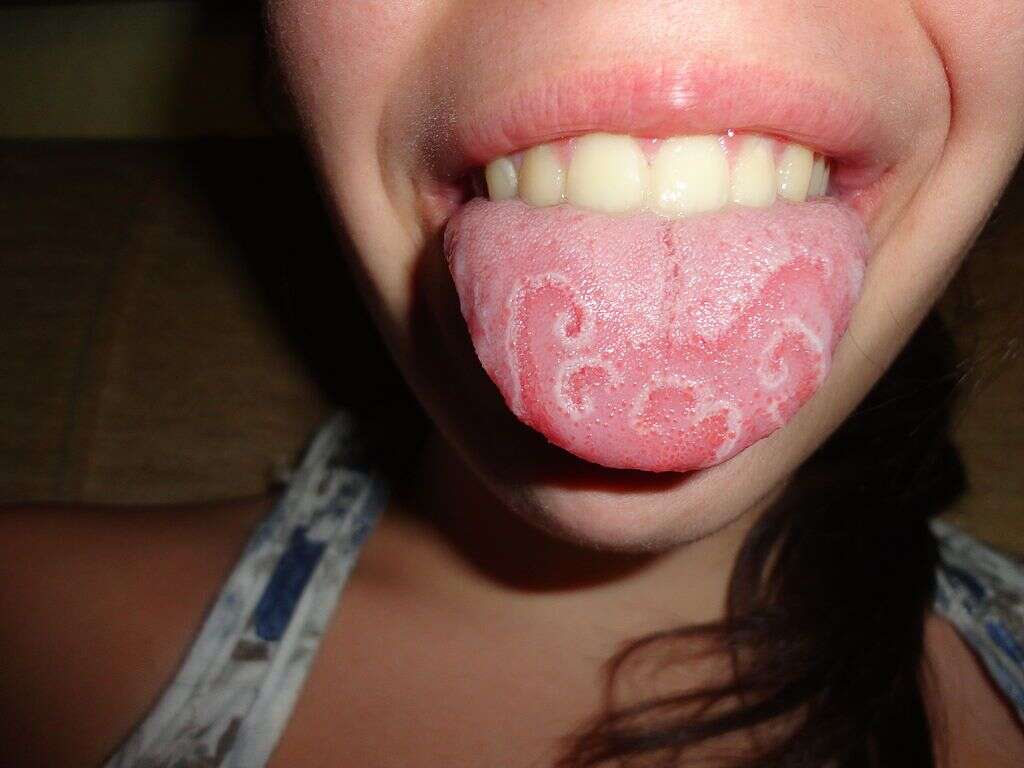
1. What Is Fissured Tongue and Is It Dangerous?
The first and most important point to understand about fissured tongue is that it is not a condition that threatens your life or overall health. Instead, it is a benign condition that typically makes itself known on the surface of the tongue. The average person’s tongue is about 3 inches long and is very flat. When someone’s tongue is fissured, it will appear to have a split in the center or a deep groove where the tongue is typically low and flat. This condition will also make the tongue appear wrinkled, with small fissures spread around the surface.
For the most part, a person with this condition will be born with it. Still, there are cases where a child develops a fissured tongue within the first few months or years of his or her life. Statistics state that about 5% of people living in the United States have this condition.
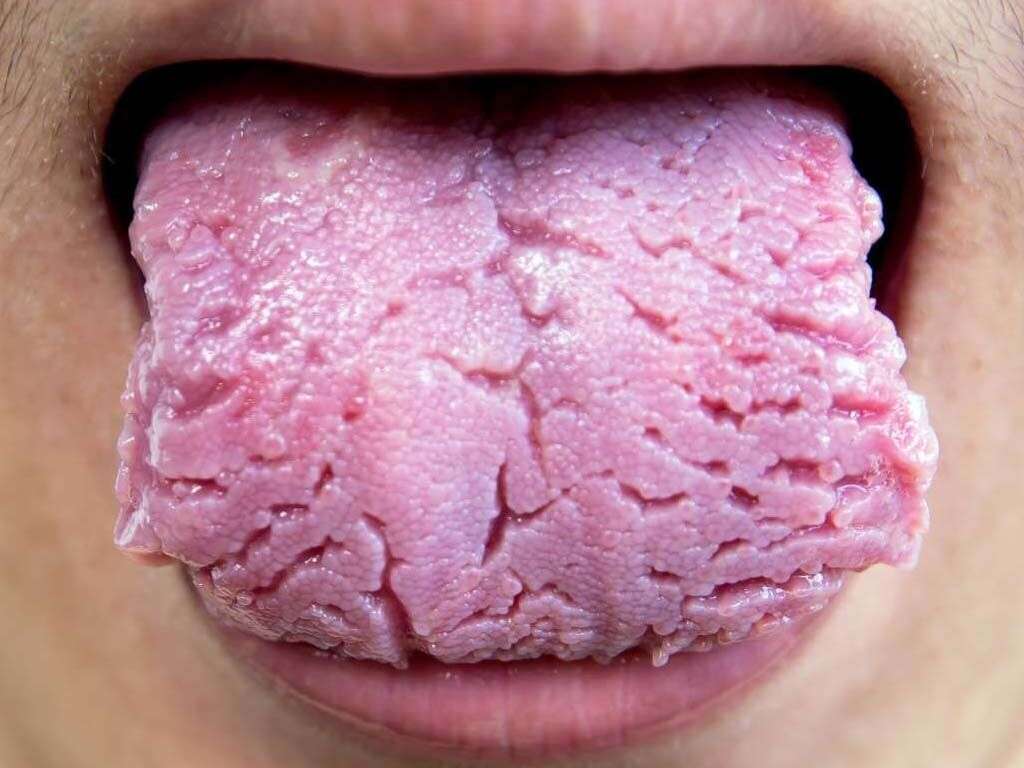
2. What Are the Symptoms of Fissured Tongue?
The most prominent symptom of a fissured tongue is the depression found in the center of the organ. This middle crack will be easy to notice and will often be accompanied by smaller fissures or cracks in the surface of the tongue. An overly wrinkled appearance of the tongue is common in some individuals with this condition. It is also normal for a person with a fissured tongue to be missing papillae, the small white and pink bumps typically found along the tongue’s surface. Instead, a person will have smooth, reddish spots.
All of the symptoms associated with a fissured tongue are minute. In fact, there are many people who live with this condition and never notice. However, a very small number of people have reported minor discomfort from the fissures.

3. Is Geographic Tongue the Same as Fissured Tongue?
Fissured tongue is sometimes connected to another tongue-related condition known as geographic tongue. There are several similarities between the two. A geographic tongue also has an altered surface, but instead of cracks, it will have lesions that give the tongue the appearance of a map. As with fissured tongue, the papillae are likely to disappear and leave behind a red, smooth spot. There is no need for alarm with this condition, as it is merely the result of inflammation in the tongue and not a sign of a deeper problem.
There is a need to take action should you notice the same map-like pattern in other parts of your mouth. When you notice similar shapes on the roof of your mouth or underneath your tongue, it could be pointing to another condition and is a reason to visit your primary care physician.

4. What Are the Causes of Fissured Tongue?
Though harmless, you might be curious about the nature of this condition. For the most part, there has been no conclusive evidence suggesting why a person is born with this condition. The best guess at the moment is that a fissured tongue is the result of genetics. Scientists and researchers do agree that this condition is simply a variation on what is considered normal for the tongue and is not a cause for concern unless coupled with more severe symptoms. Interestingly, men are a bit more likely to have this condition than women.
While a person is born with a fissured tongue or develops it within the earliest stages of his or her life, it is not a condition that persists in all. In fact, a majority of people who have slight cases of a fissured tongue will notice the depression vanished as they get older.

5. Are There Conditions Associated with Fissured Tongue?
Though harmless by itself, it is important to take note of a fissured tongue when it is coupled with other symptoms. Genetic conditions like Down syndrome can cause variations in a person’s physical and mental development. In many cases, a fissured tongue is the direct result of such variations. Neurological conditions like Melkersson-Rosenthal syndrome are also heralded by a fissured tongue, along with facial paralysis and swelling of the lips and face. With Down syndrome and Melkersson-Rosenthal syndrome, the fissured tongue will be one of a number of symptoms.
Some physicians have also reported fissured tongue in relation to other conditions. Though unclear on the specifics, malnutrition or a deficiency with specific minerals or vitamins might lead to the condition. There might also be a connection between fissured tongue and psoriasis, a common skin disorder.

6. What Are the Treatments for Fissured Tongue?
Due to the fact that fissured tongue is usually a condition without any problematic symptoms or long-term consequences, there is no need to have it treated by a medical professional. This does not mean that there are not certain considerations to take if you have the condition. Dentists advise taking extra care with brushing when your tongue is fissured, as bacteria can easily hide and thrive in the deep grooves on the tongue. Spending time brushing and scraping the tongue can reduce the odds of excessive plaque leading to tooth decay.
As mentioned, a fissured tongue is likely to become less prominent as a person gets older. If the fissures remain throughout your life, you simply need to make sure you are always consulting with your dentist about better ways to keep your tongue free of bacteria.

7. Are Tongue Fissures the Only Growths to Focus On?
Since fissures are harmless for the most part, there isn’t much need to focus on them outside of boosting your basic dental practices. However, this doesn’t mean you should ignore growths that appear on your tongue. Oral cancer is an incredibly serious condition you want to catch early in order to find some type of treatment. In many cases, oral cancer will make itself known through an ulcer or similar growth on a person’s tongue. Should you notice anything peculiar growing on the surface, have it looked at by a doctor as soon as possible.
Ulcers and oral cancers are most common in people who smoke or drink alcohol in excess. Still, anyone can develop this cancer based on genetic history and environmental factors.
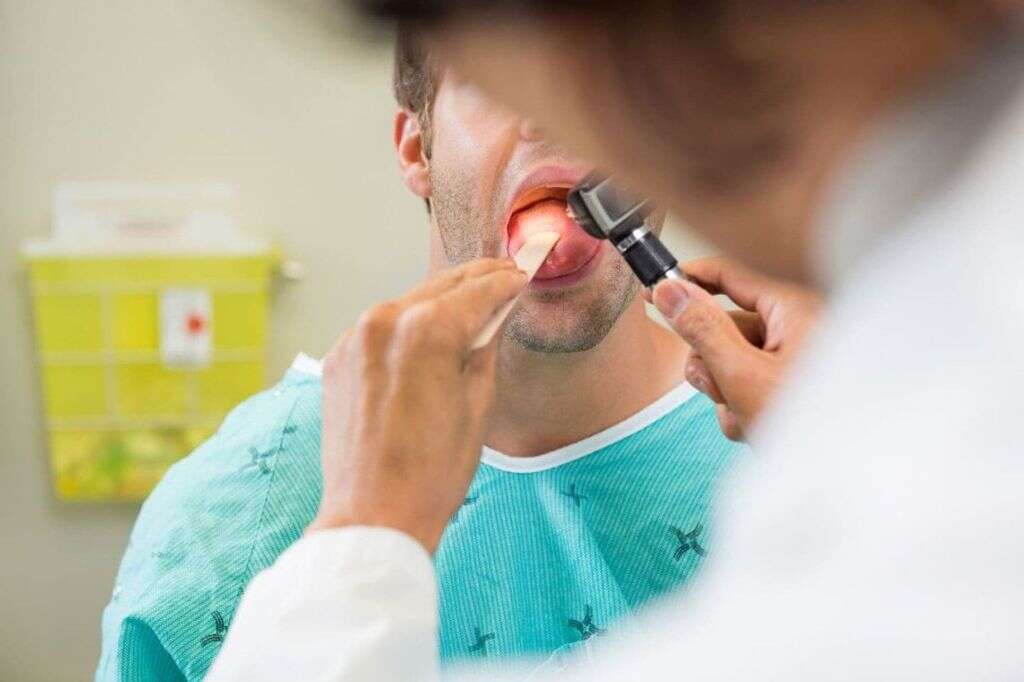
8. Is Bald Tongue the Same as a Fissured Tongue?
One of the defining characteristics of a fissured tongue is a reduced number of papillae, the white and pink bumps found on the surface of the average tongue. While it is a symptom associated with fissured tongue, it might also be suggestive of another condition. Bald tongue, also known as atrophic glossitis, is when the tongue loses a majority or all of the papillae on the surface. Instead, the tongue will appear smooth, flat, and very red. Unlike fissured tongue, bald tongue might require you to take action to fix the issue at hand.
In some cases, a bald tongue is the result of a lack of particular nutrients. Experts believe it can be caused when a person is not getting enough vitamin B. There is also some evidence to suggest that a bald tongue is a symptom of anemia.
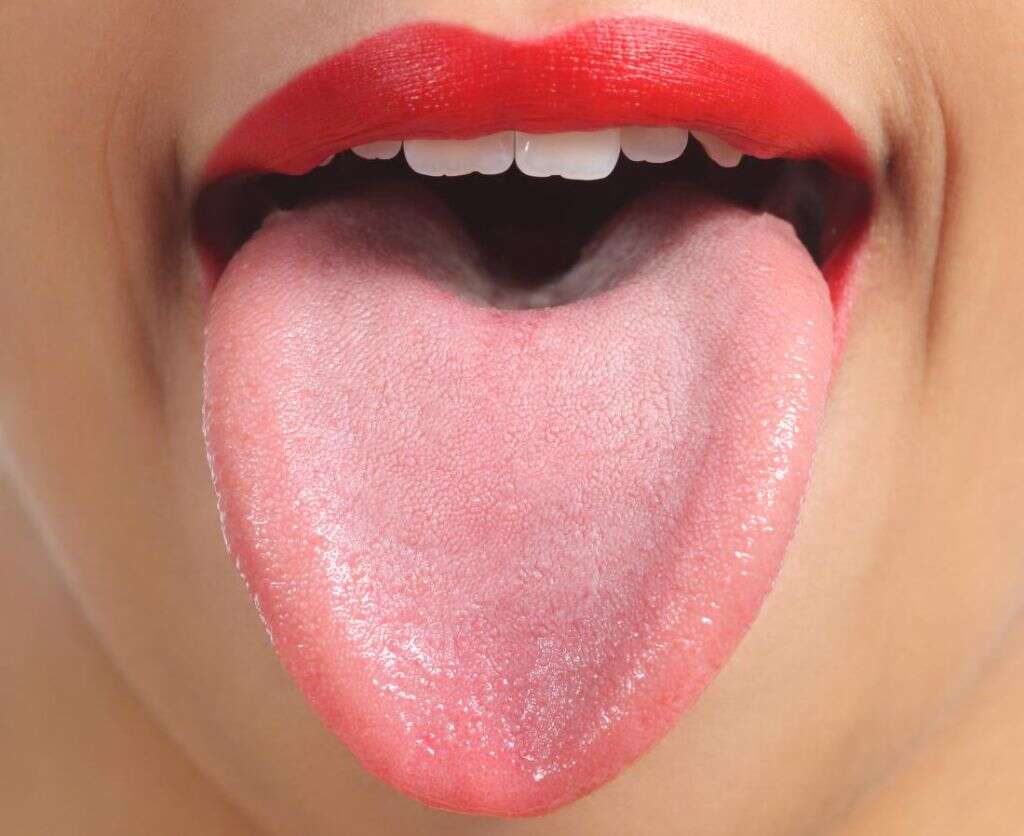
9. How Does Hairy Tongue Compare to Fissured Tongue?
Another common condition that people experience in the mouth is hairy tongue. While fissured tongue is characterized by a reduced number of papillae, hairy tongue is the opposite. A person with this condition is likely to have an abundance of papillae. This can give the tongue a white or black coloration that gives it a slightly fuzzy or hairy appearance. While it might look and feel peculiar, this is a very harmless condition that does not require much effort to treat.
In most cases, a hairy tongue can be controlled by scraping the papillae from the surface. Visit with a medical professional to learn more about the best ways to keep this condition in check.
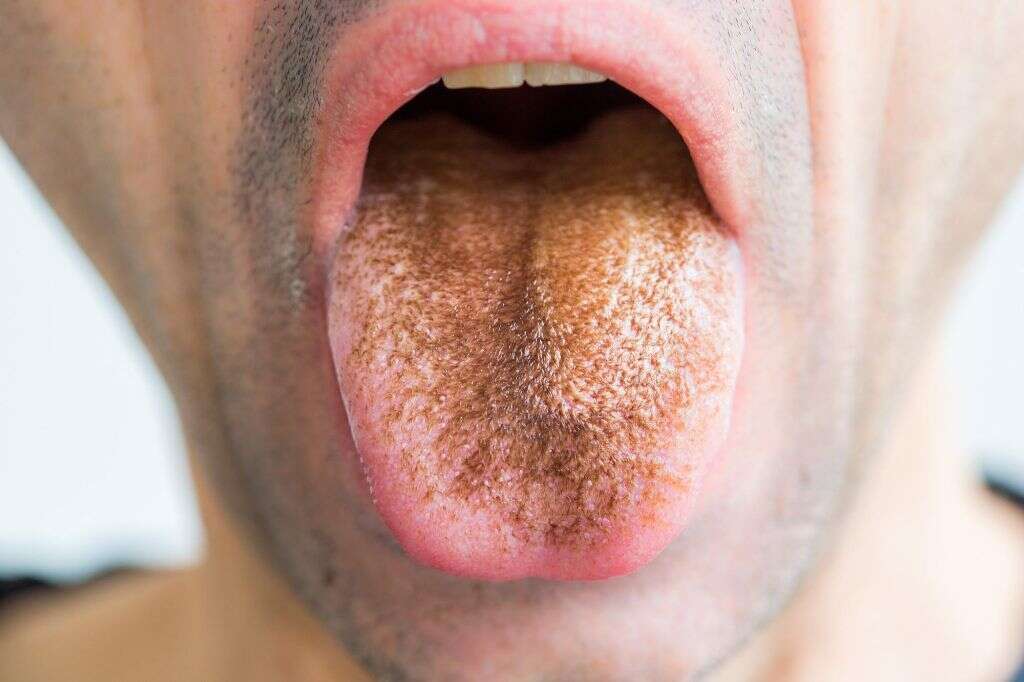
10. How Do I Avoid Fissured Tongue and Similar Conditions?
Since fissured tongue is a condition present in a person from birth or the earliest weeks afterward, there is no real way to avoid the condition. Instead, it is crucial to pay attention to the general health and appearance of your mouth to avoid more serious problems. If you take note of fissures alone and without any discomfort, you likely don’t need medical assistance. However, fissures that are accompanied by other symptoms such as pain, bleeding, burning sensations, swelling, or odd growths should be taken seriously and looked at by your primary care physician immediately.
Fissured tongue is a harmless condition that most people will barely notice living with. As long as there are no additional symptoms, the best way to handle living with this condition is being extra mindful when brushing and tending to oral care.











